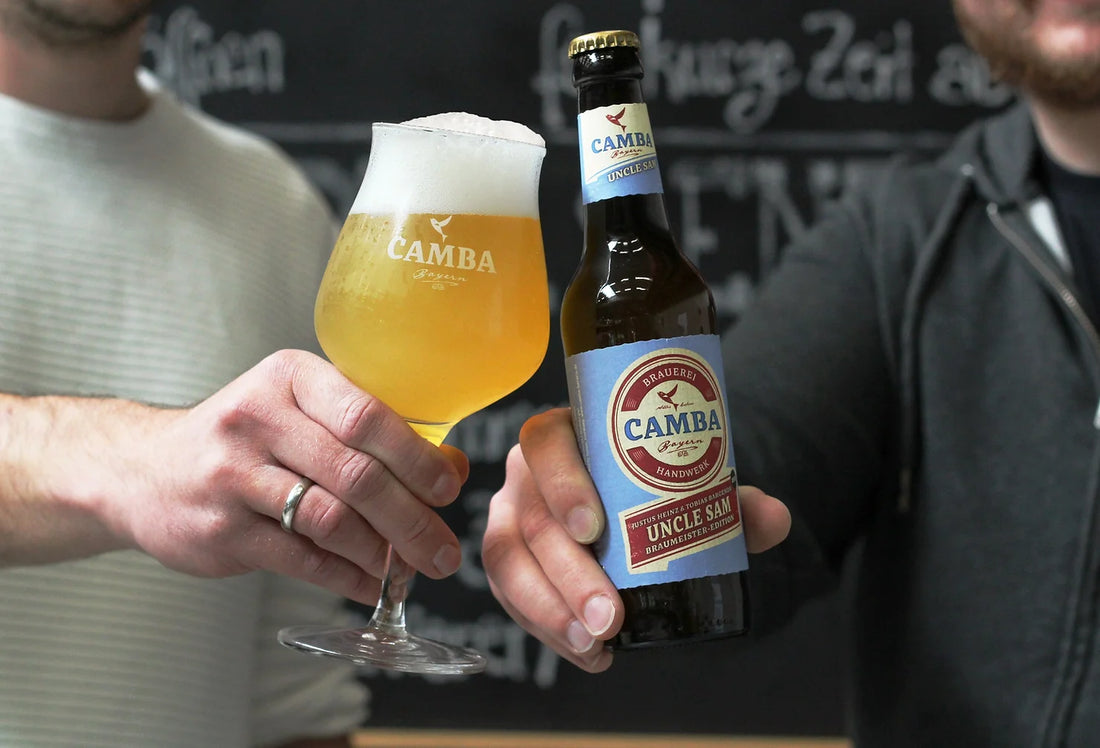
German Beer Purity Law - how to achieve the pure taste
The German Purity Law is not only a historical law, but also a promise of quality that is recognized worldwide. If you have always wondered what is behind the German Purity Law and how it ensures the pure taste of beer, then you have come to the right place. In this article you will learn everything about the Purity Law and how it influences beer brewing .

What is the German Purity Law?
The German Purity Law, also known as the Beer Purity Law, is the oldest food law still in force in the world. It was enacted on April 23, 1516 in Ingolstadt by Duke William IV of Bavaria.
The Components of the Purity Law
According to the Purity Law, only three ingredients may be used to brew beer: water, barley and hops. Yeast was later added, as at the time of the law it was not yet known that it was responsible for the fermentation process . The use of other additives or flavorings is not permitted. This strict regulation ensures that the beer retains a natural and authentic taste.
Why is the German Purity Law so important?
The German Purity Law is much more than just a law; it is a symbol of quality and tradition. But why is it so important and how does it influence the beer industry today?
Quality assurance through the Purity Law
The Purity Law ensures that the beer is made only from traditional ingredients , without artificial additives or flavor enhancers.

How does the German Purity Law affect the brewing industry?
The Purity Law plays a central role in the German brewing industry. But how exactly does it affect the production and distribution of beer?
Of course you are curious where you can enjoy this beer with the guaranteed quality and tradition of the German Purity Law. We have the answer! In our shop we offer a wide range of beers brewed strictly according to the German Purity Law. Visit our shop and discover the diverse flavors and beer styles that the Purity Law makes possible. Enjoy the quality and craftsmanship that goes into every sip.
promotion of quality and craftsmanship
The German Purity Law sets standards that ensure the quality of beer. It promotes craftsmanship and traditional brewing methods by banning artificial additives and flavor enhancers. The result is a beer that not only tastes good, but also reflects the skill and passion of the brewers.

influence on the variety of beer types
Despite the strict rules, the Purity Law allows room for creativity and innovation. Brewers experiment with different types of malt, hops and brewing techniques to create a variety of flavors and beer styles. Here are some examples:
-
Pilsner : Light, clear and hoppy.
-
Weißbier : Soft, fruity, often with notes of banana and clove.
-
Kölsch : Light, fresh and malty.
-
Bock beer : Strong, sweet and full-bodied.
The German Purity Law in the Modern World
In the age of globalization and technological progress , the German Purity Law remains a symbol of quality and tradition. But how does it fit into the modern world?
Of course, the German Purity Law is also of crucial importance for many local breweries. An outstanding example of this is Camba Bavaria. This brewery in the heart of Bavaria upholds the tradition of the Purity Law while combining it with modern brewing techniques.
Camba Bavaria – Tradition meets innovation
Camba Bavaria stands for artisanal brewing and places great value on quality and taste. By strictly adhering to the Purity Law, the brewery succeeds in producing beers of unmistakable character and purity. At the same time, Camba Bavaria is known for developing creative and innovative beer styles without exceeding the limits of the Purity Law. Whether classic light beers, strong dark beers or experimental specialties - Camba Bavaria shows how the Purity Law can still serve as a guideline for quality and innovation today. A visit to the brewery also offers a deep insight into the art of brewing and the importance of the Purity Law in the modern beer market.

challenges and criticism
Some critics see the Reinheitsgebot as outdated because it limits the use of new ingredients and technologies. Others argue that it harms diversity by leading to uniform flavor profiles. These criticisms have sparked debate, but the Reinheitsgebot remains a central element of German beer culture.
The Purity Law as a Marketing Tool
The Purity Law also serves as an effective marketing tool. It signals quality and authenticity, which is particularly valued in international markets. Beer brewed according to the Purity Law enjoys an excellent reputation, and many breweries emphasize this aspect in their advertising.
